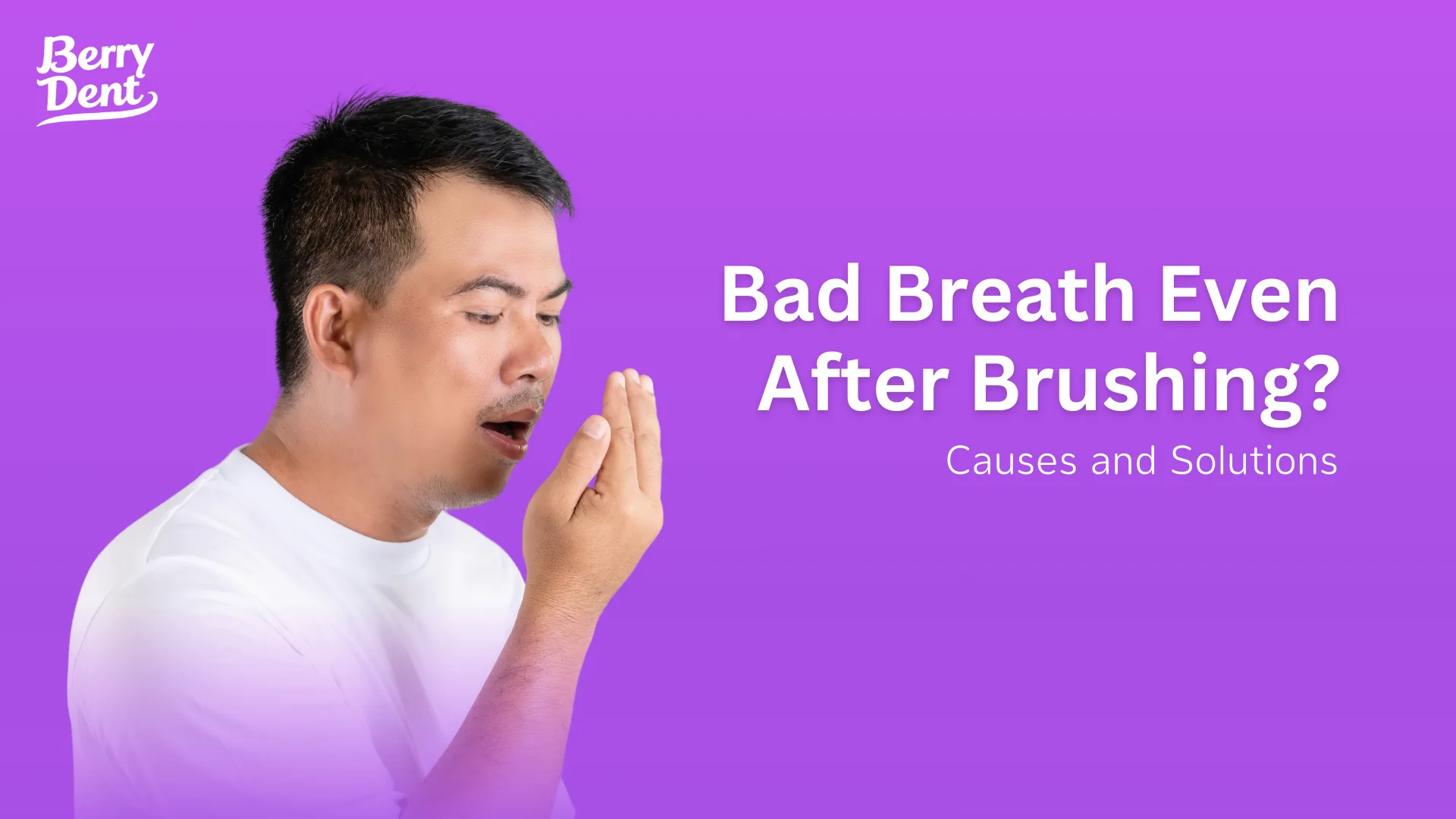Bad breath is a common problem, affecting individuals even with diligent oral hygiene and regular brushing. Beyond daily inconveniences, bad breath can indicate underlying health issues. Understanding its causes and solutions is essential.
Common Causes of Bad Breath
Bad breath can arise from various factors, even with good oral hygiene. Common culprits include:
1. Oral Bacteria Buildup
The mouth naturally contains bacteria. When these bacteria interact with food particles trapped between teeth or on the tongue, they produce volatile sulfur compounds (VSCs), the primary cause of bad breath.
2. Dry Mouth (Xerostomia)
Saliva plays a crucial role in washing away bacteria and food debris. Reduced saliva production due to medications, medical conditions, or mouth breathing can increase bacterial buildup and lead to bad breath.
3. Certain Foods
Foods like garlic, onions, coffee, or strong-smelling spices can cause bad breath even after brushing, as their compounds enter the bloodstream and are released through breath.
4. Oral and Gum Diseases
Gingivitis and periodontitis contribute to bad breath due to the accumulation of plaque and tartar, which harbor odor-causing bacteria.
5. Other Health Issues
Bad breath can stem from digestive issues like acid reflux, diabetes, or liver and kidney problems, which release certain substances through breath.
Effective Solutions for Bad Breath
To effectively reduce or eliminate bad breath, consider the following:
1. Maintain Good Oral Hygiene
Brushing twice daily and flossing to remove trapped food particles reduce bacterial buildup. Regular tongue cleaning with a tongue scraper also helps.
2. Use an Appropriate Mouthwash
Antibacterial mouthwashes containing chlorhexidine or fluoride can help control odor-causing bacteria.
3. Increase Saliva Production
Drinking plenty of water and chewing sugar-free gum stimulates saliva production, keeping the mouth moist and reducing bacterial accumulation.
4. Avoid Strong-Smelling Foods
If consuming strong-smelling foods, drink plenty of water and brush or chew sugar-free gum afterward.
5. Regular Dental Checkups
Visiting the dentist every 6 months for professional cleanings helps prevent bad breath from gum disease and tooth decay.
Bad breath can impact confidence, but understanding its causes and maintaining good oral hygiene can address the issue. Using natural extract toothpaste with 1500 ppm fluoride can further enhance oral care.
Berry Dent, a hybrid herbal toothpaste, combines the benefits of raspberries, blueberries, blackberries, cranberries, and açaí berries, rich in antioxidants, to reduce plaque and bacterial buildup. With added mangosteen peel, guava leaf, and licorice root extracts for antibacterial and gum health benefits, plus clove, peppermint, and menthol essential oils for long-lasting freshness, Berry Dent promotes clean, healthy mouths and fresh breath.


